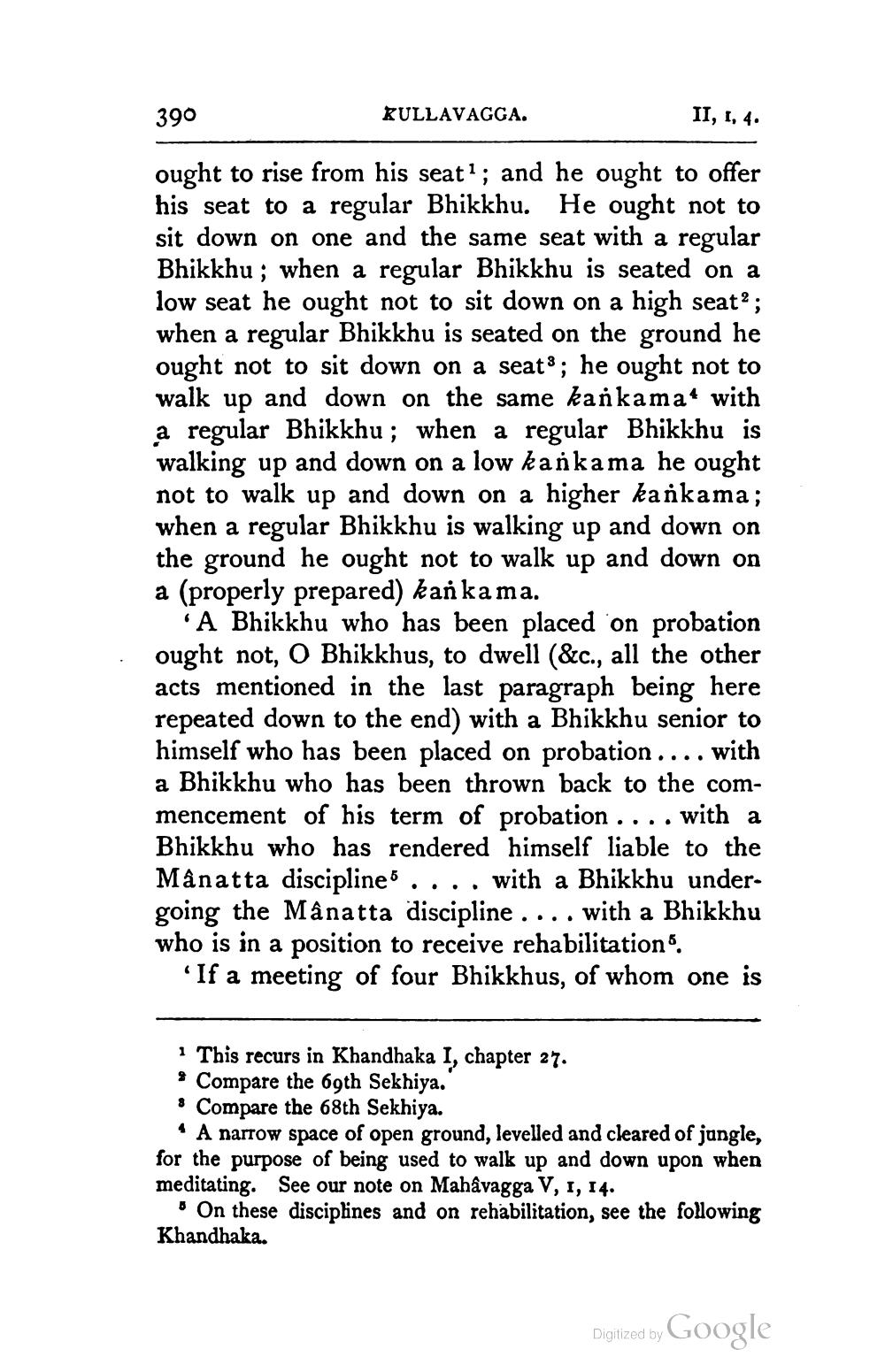________________
390
KULLAVAGGA.
II, 1, 4.
ought to rise from his seat?; and he ought to offer his seat to a regular Bhikkhu. He ought not to sit down on one and the same seat with a regular Bhikkhu ; when a regular Bhikkhu is seated on a low seat he ought not to sit down on a high seata; when a regular Bhikkhu is seated on the ground he ought not to sit down on a seats; he ought not to walk up and down on the same kankama+ with a regular Bhikkhu ; when a regular Bhikkhu is walking up and down on a low kanka ma he ought not to walk up and down on a higher kařkama; when a regular Bhikkhu is walking up and down on the ground he ought not to walk up and down on a (properly prepared) kankama.
'A Bhikkhu who has been placed on probation ought not, O Bhikkhus, to dwell (&c., all the other acts mentioned in the last paragraph being here repeated down to the end) with a Bhikkhu senior to himself who has been placed on probation .... with a Bhikkhu who has been thrown back to the commencement of his term of probation .... with a Bhikkhu who has rendered himself liable to the Mânatta discipline . . . . with a Bhikkhu undergoing the Mânatta discipline .... with a Bhikkhu who is in a position to receive rehabilitation6.
'If a meeting of four Bhikkhus, of whom one is
1 This recurs in Khandhaka I, chapter 27.
Compare the 69th Sekhiya.' • Compare the 68th Sekhiya.
A narrow space of open ground, levelled and cleared of jungle, for the purpose of being used to walk up and down upon when meditating. See our note on Mahâvagga V, 1, 14.
On these disciplines and on rehabilitation, see the following Khandhaka.
Digitized by
Digitized by Google




